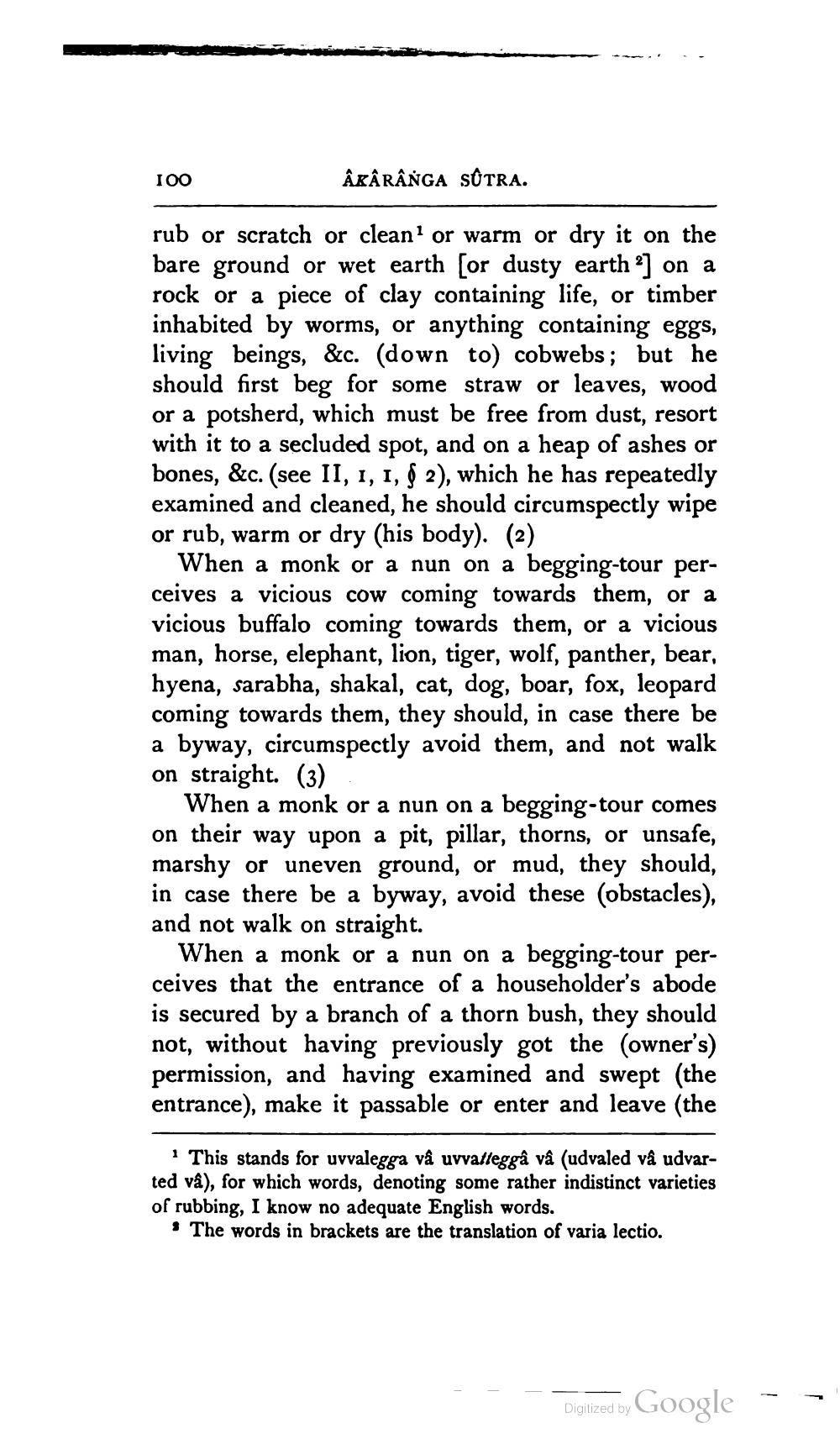________________
100
ÂKÂRÂNGA SUTRA.
rub or scratch or clean or warm or dry it on the bare ground or wet earth (or dusty earth ?] on a rock or a piece of clay containing life, or timber inhabited by worms, or anything containing eggs, living beings, &c. (down to) cobwebs; but he should first beg for some straw or leaves, wood or a potsherd, which must be free from dust, resort with it to a secluded spot, and on a heap of ashes or bones, &c. (see II, 1, 1, § 2), which he has repeatedly examined and cleaned, he should circumspectly wipe or rub, warm or dry (his body). (2)
When a monk or a nun on a begging-tour perceives a vicious cow coming towards them, or a vicious buffalo coming towards them, or a vicious man, horse, elephant, lion, tiger, wolf, panther, bear, hyena, sarabha, shakal, cat, dog, boar, fox, leopard coming towards them, they should, in case there be a byway, circumspectly avoid them, and not walk on straight. (3)
When a monk or a nun on a begging-tour comes on their way upon a pit, pillar, thorns, or unsafe, marshy or uneven ground, or mud, they should, in case there be a byway, avoid these (obstacles), and not walk on straight.
When a monk or a nun on a begging-tour perceives that the entrance of a householder's abode is secured by a branch of a thorn bush, they should not, without having previously got the (owner's) permission, and having examined and swept (the entrance), make it passable or enter and leave (the
1 This stands for uvvalegga va uvvatteggâ vâ (udvaled vå udvarted vå), for which words, denoting some rather indistinct varieties of rubbing, I know no adequate English words.
• The words in brackets are the translation of varia lectio.
Digitized by Google
-
-




